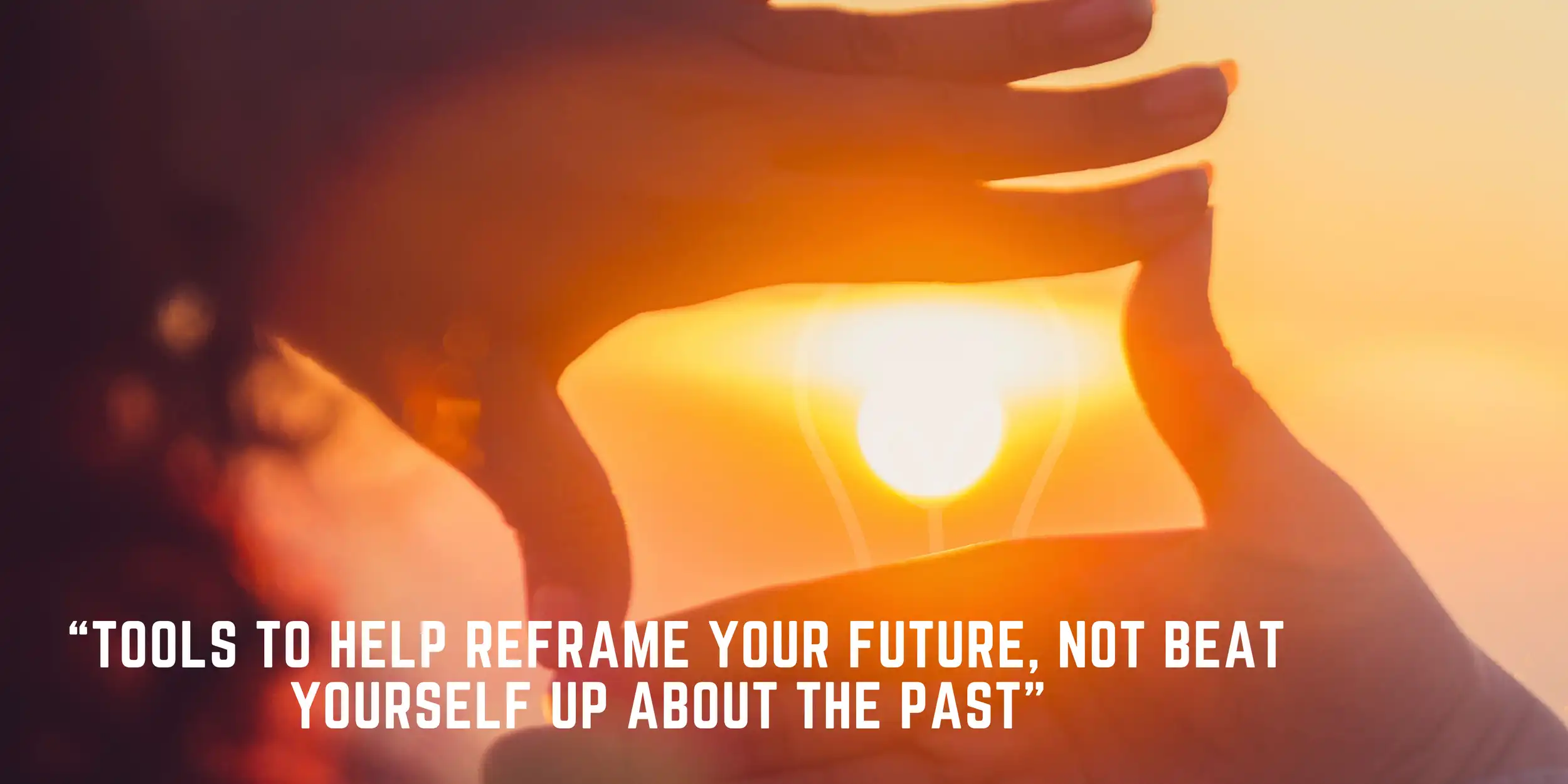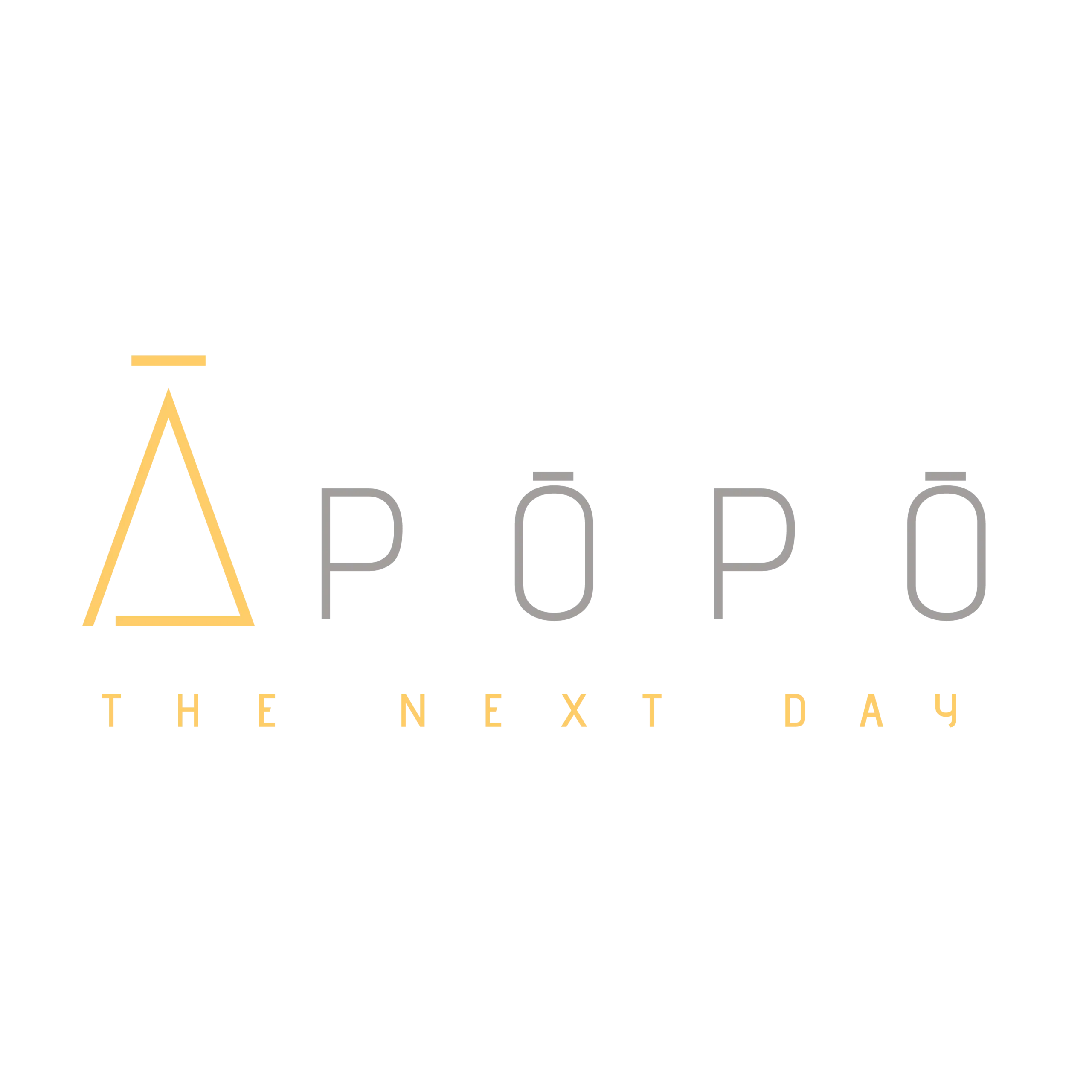
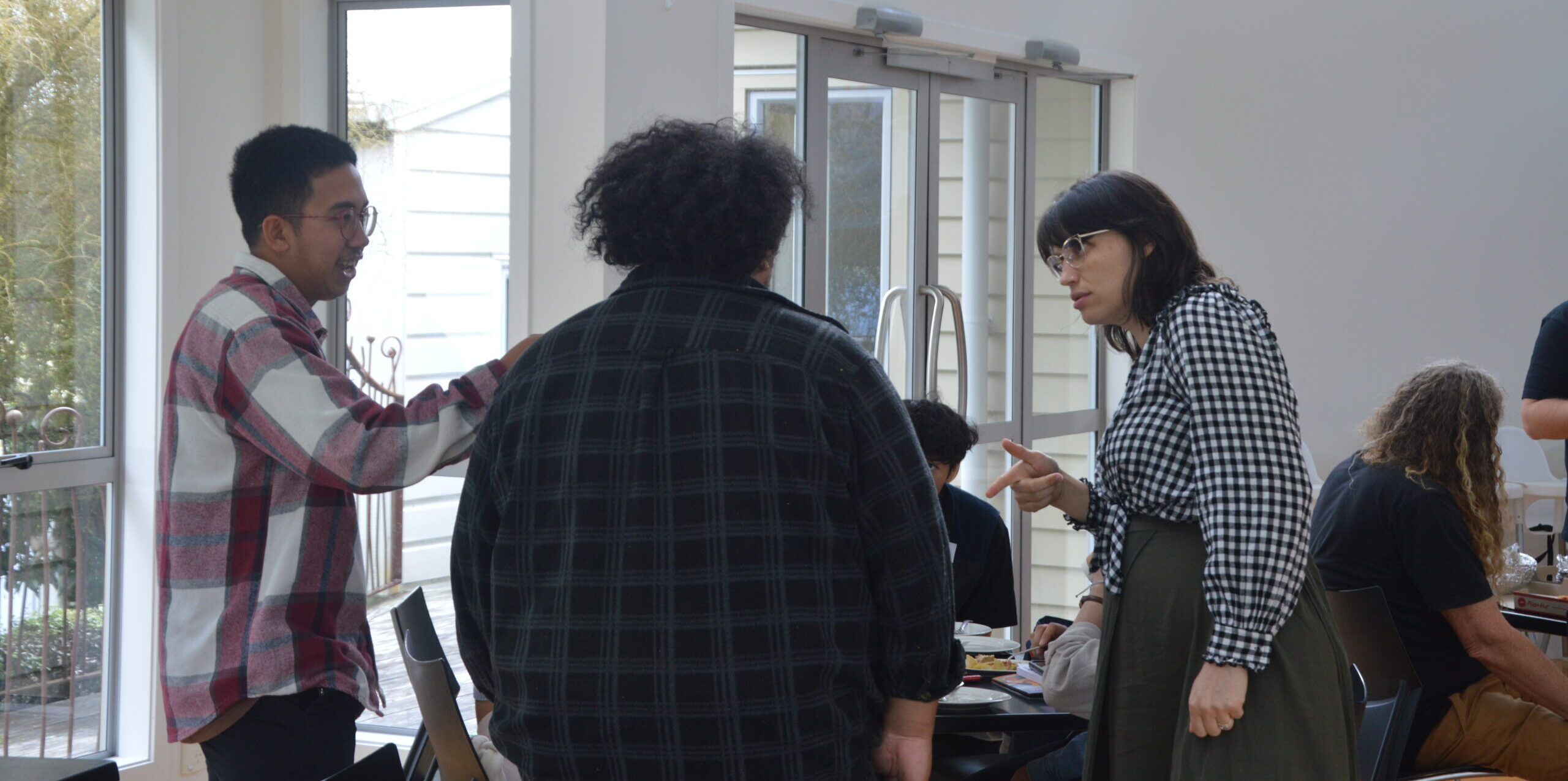
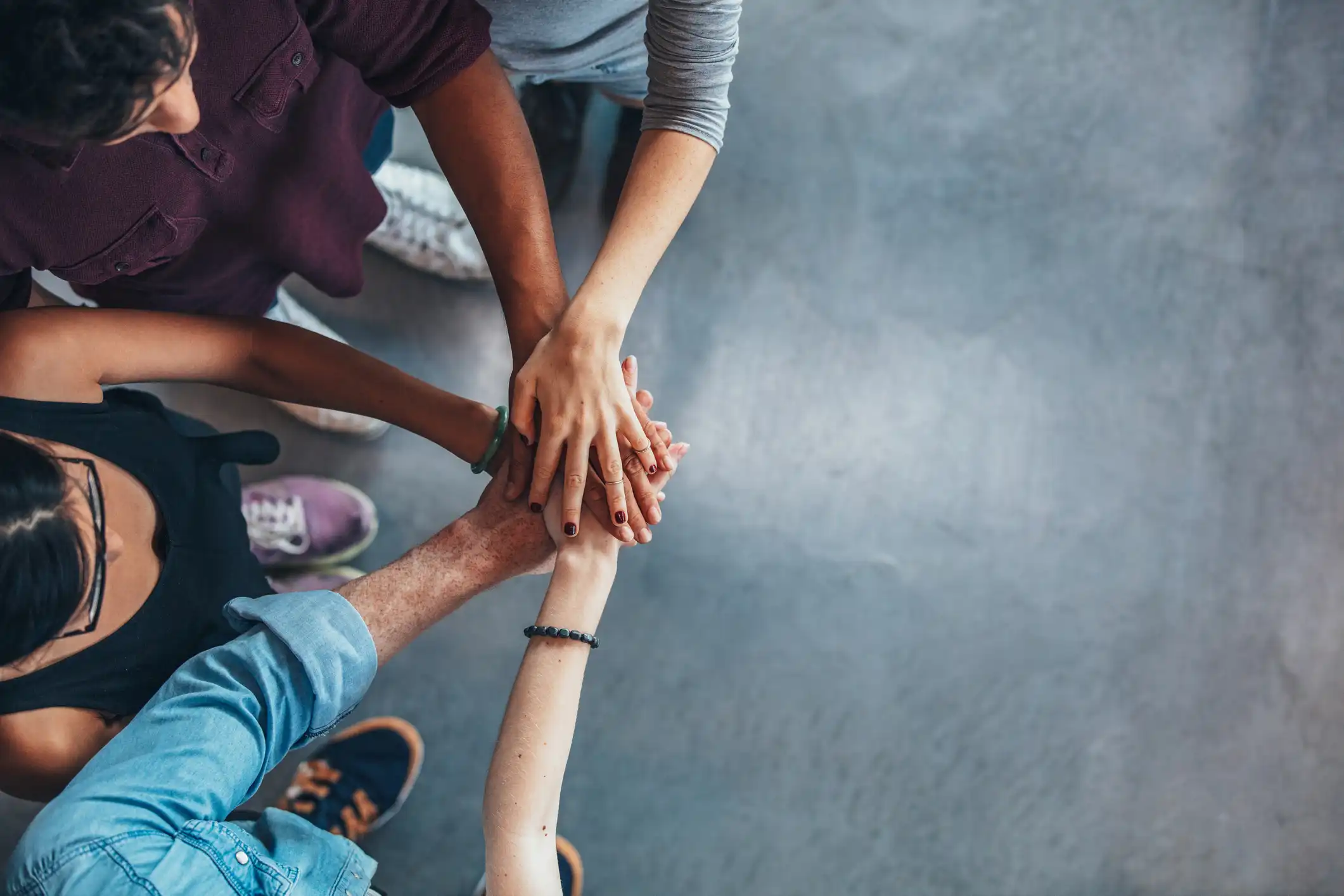
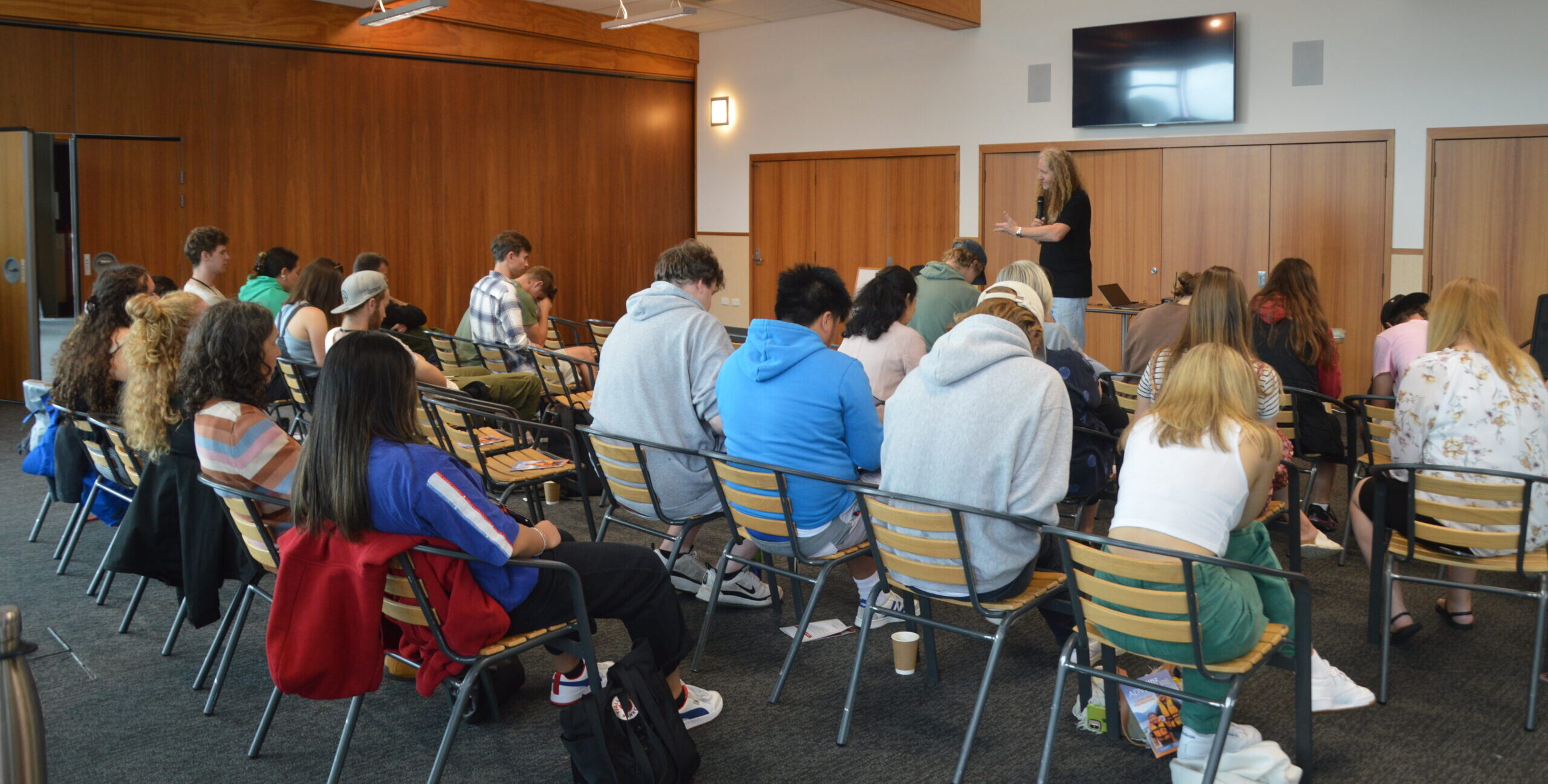
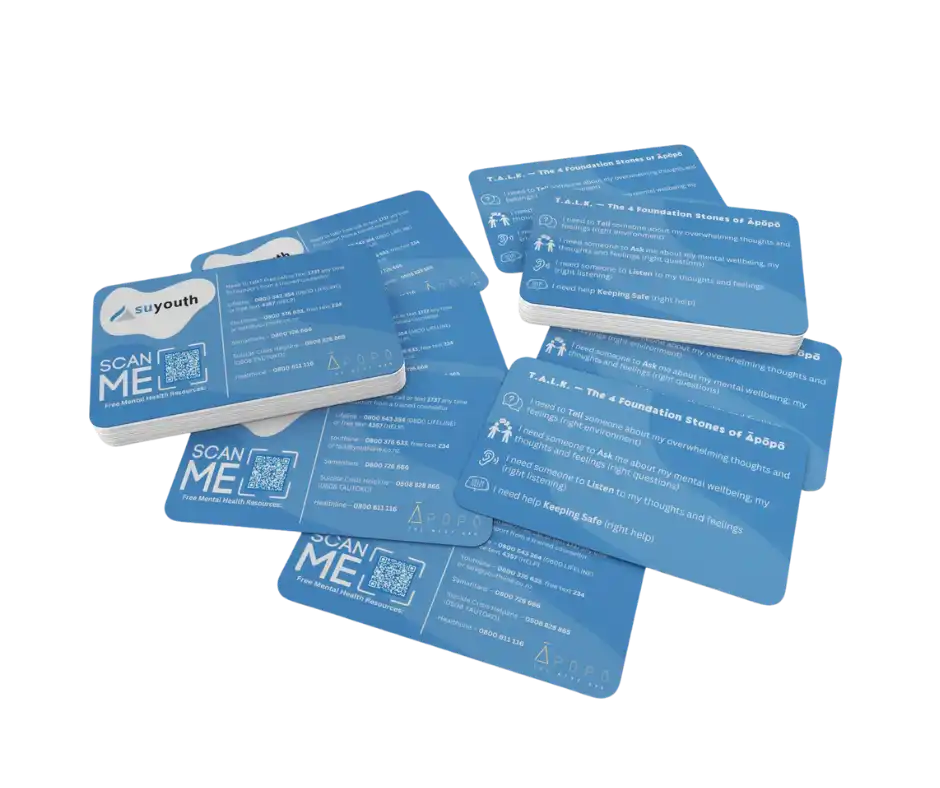
Interactive with games, activities and opportunities for participants to practice T.A.L.K. skills they’ve learned
Teaches skills of how to notice, recognise, and respond when themselves or others are experiencing overwhelming thoughts and feelings
Embraces a holistic approach to health drawing from the ‘Te Whare Tapa Whā’ model
Is suitable for a range of contexts, from schools to youth groups, churches and community groups (and many more)
Fits within the NZ Curriculum Achievement Objectives for Health and Physical Education. Specifically, C1 Relationships; C2 Identity, sensitivity, and respect; C3 Interpersonal skills
Fosters positive attitudes towards friendship and mental wellbeing
Does not replace professional supports
